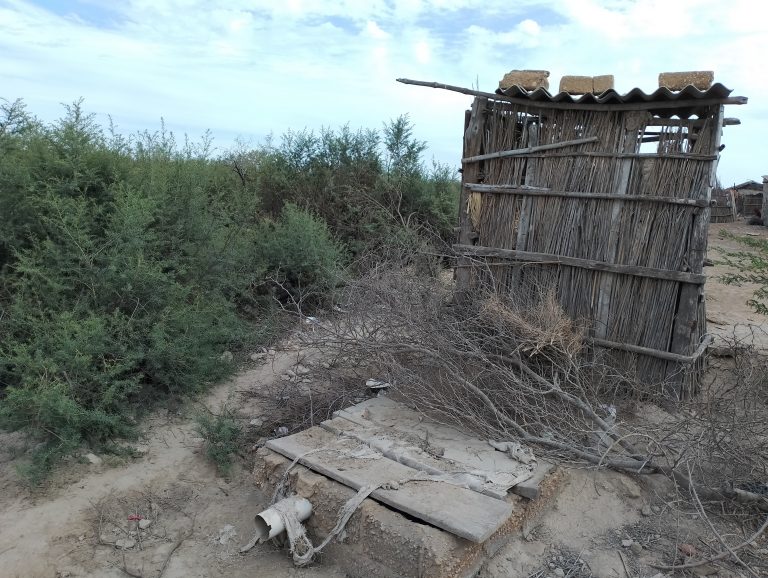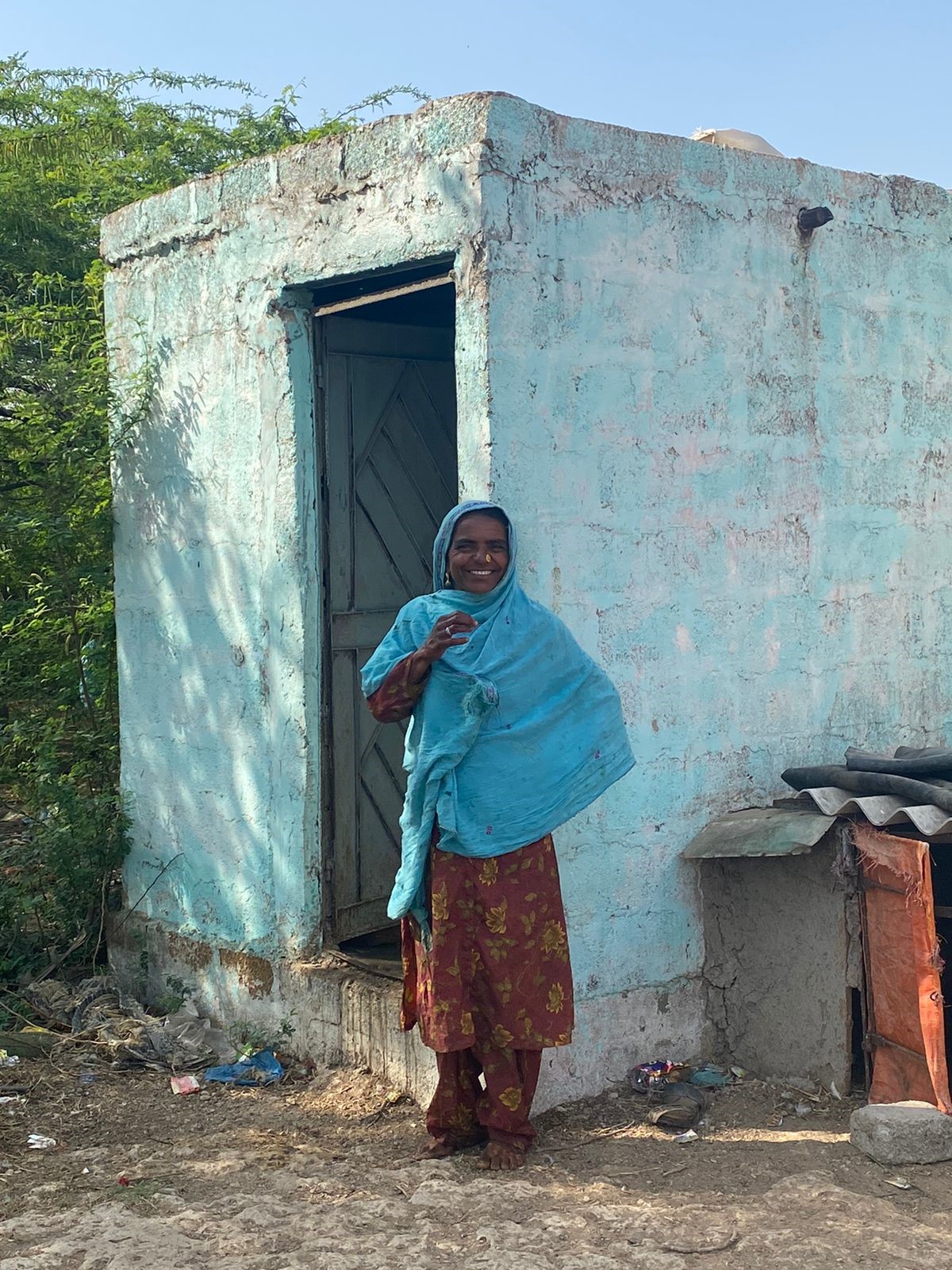
One major issue that results as a direct impact of poor sanitation facilities and awareness surrounding hygienic practices, is the prevalence of open defecation across both rural and urban Sindh
Munawar Alee Kapri
Pakistan has set a target to provide 100% sanitation coverage across the country by 2030 as a part of its commitment to the Sustainable Development Goals (SDGs) set by the United Nations. Out of five provinces, the question of sanitation in Sindh has become increasingly important as the province struggles with issues such as malnutrition and stunting as one of the impacts of poor sanitation facilities. Sindh is working on addressing the problem of sanitation and thus addressing the larger problem of malnutrition; however, numerous challenges need to be addressed to reach this goal successfully. Alongside government efforts, there are internationally funded development sector projects that aim to help the government of Sindh achieve its goals pertaining to the issues mentioned above. The Program for improved nutrition in Sindh (PINS) program, also known as PINS ER3 nutrition sensitive component, is one such project that supports rural communities in addressing malnutrition and has one component that highlights the significance of the WASH (Water, Sanitation, and Hygiene) program in achieving sanitation goals. As someone with over four years of experience working closely with rural communities through this program, I am writing this article to reflect on the learnings from the program specific to issues pertaining to sanitation and aim to identify the steps that can be taken to achieve the goals set and provide recommendations for improvement.
WASH initiative has successfully obtained open defecation-free certification for over 1800 villages across 10 districts in Sindh
One major issue that results as a direct impact of poor sanitation facilities and awareness surrounding hygienic practices, is the prevalence of open defecation across both rural and urban Sindh. Practices pertaining to open defecation lead to disease, poor hygienic conditions and ultimately add to the prevalence of diarrhea within these communities. Not only is there a lack of sanitation facilities in Rural Sindh, social practices have also normalized the concept of defecating in the open. This is a serious issue that will solve a myriad of other problems if it is tackled successfully. Given the multiple problems that stem from this one issue, this article will explore the challenges pertaining to Open Defecation.
The achievement was possible through the construction and utilization of basic pit latrines by more than 150,000 poor households
The PINS program (Nutrition Sensitive Component) stands out as the only WASH initiative that has successfully obtained open defecation-free certification for over 1800 villages across 10 districts in Sindh. This achievement was possible through the construction and utilization of basic pit latrines by more than 150,000 poor households. However, sustaining this success has proven challenging. Many of these basic latrines, constructed particularly in flood-prone areas with saline soil, have been destroyed. Moreover, due to lack of financial capacity to upgrading these basic latrines or the lack of any plan linking these latrines to sanitation schemes poses risks such as contamination of already scarce water sources and loosing community interest in such interventions. However, one important factor to mention is that the leading cause of our huge success with this intervention was due to the support of the women who are part of the communities in these areas. Keeping these factors in mind, I believe that the actual lessons learnt could be translated into recommendations for future intervention designed on similar lines. In the article below I will try to break these lessons learnt from tackling issues such as Open Defecation on such a large scale in the form of recommendations for the readers. The lessons mentioned in this article will be focusing on two levels – one, they will look at the changes and decisions needed to be made at the planning and policy level. The other aspect I am considering is the socio-economic factors and the role that social practices play in inspiring the success of any interventions undertake.

It is crucial to either provide the means to upgrade the basic latrines, mostly constructed by poor households, or link them with sanitation schemes
To ensure the sustainability of open defecation-free villages and ensure a path towards availability and usage of improved sanitation facilities, a plan must be established in advance. It is crucial to either provide the means to upgrade the basic latrines, mostly constructed by poor households, or link them with sanitation schemes. This becomes even more important in saline areas as the water table in these areas is already high. During times of flooding, water recedes quite slowly and resultantly weakens the structure of latrines and pits of these latrines get full. This means that providing households with basic structures without any follow up plans in motions will inevitably make the situation worse given that these basic structures cannot survive.
In addition to this, records of all open defecation-free certifications at the union council (UC) and district level should be digitally maintained to avoid duplicating efforts and redirect future investments to non-intervened areas. These records also hold organizations accountable for their part of WASH interventions and ensures that follow ups can be taken easily.
Furthermore, strengthening and capacitating the District Coordination Committees for Nutrition (DCCN) under the Accelerated Action Plan (AAP) can be instrumental to the issue of sanitation schemes – For some context, these committees were formed in 2019 in each district in Sindh with the help of UNICEF. The AAP is a government initiative undertaken in order to solve the issue of malnutrition. These DCCN committees can serve as a singular channel where all investment under WASH can now be coordinated. Realistically speaking, some functionality issues exist due to the Deputy Commissioners priorities at the district level, but given the right support from the AAP, these committees still can be kept active and effective. These committees can be used to ensure each district should have an overarching yet flexible plan to make all villages open defecation-free. WASH-related funds can be directed towards strengthening these plans. Additionally, including Disaster Risk Reduction (DRR) Committees in DCCN will ensure that development interventions consider DRR aspects for mitigation and adaptation.
Subsidies or cash matching grants should be provided for constructing latrines in the households
One important observation that is overlooked at times is the key role that the Public Health Engineering Department (PHED) can play in ensuring the long-lasting success of WASH interventions. This department plays a crucial role in designing and implementing sanitation schemes. Therefore, it is essential to involve the PHED in the AAP task force to maximize its contribution. Existing policies and procedures limiting the PHED’s scope should be revised in collaboration with the task force to address ground-level challenges. If resolved, this can lead to a partnership between NGOs and the government for a greater success in WASH.
Moving on to the socioeconomic factors affecting issues such as sanitation in Sindh, it is an undeniable fact that open defecation rates are significantly higher among the poorest and most vulnerable groups in society. To address this, subsidies or cash matching grants should be provided for constructing latrines in these households. Social protection programs by government like shelter initiatives for flood-affected individuals should include latrine construction as an integral part of household planning, considering it a necessity rather than a luxury. Providing grants for latrines has proven to be beneficial, as latrine usage helps prevent diseases and saves expenditures on healthcare. Advocacy should be an integral part of every WASH program, forging effective linkages and partnerships with social protection programs to support. The experience with PINS ER3 so far has revealed that this intervention is mostly adopted successfully by the women of these households that the grant is being provided to due to issues related to privacy and protection. Thus, local level women groups should be mobilized as they make good partners in enabling the successful implementation of these schemes.
Lastly, in order to ensure the success of any given intervention or scheme, it is important to steer social practices in a way that aligns with the facilities that are being constructed. The people of Sindh have been set in their ways for decades and inspiring social change is something that needs to be given proper attention to. Given the multiple barriers that are already in place it would be difficult to implement something new altogether and it is important to take advantage of available resources to create cost effective and efficient models for behavior change communication. One such avenue to inspire social behavioral change is the local radio. To my knowledge, in each district local FM stations are flourishing. Local FM stations can easily be utilized for sharing information, education, and communication (IEC) messages related to sanitation on a scale that would be difficult to reach otherwise. To use targeted messages partnership with health department is important to know the prevalent diseases to design targeted messages, talk shows for local community. The effectiveness of such resources was also observed during pandemic 19 period and given its popularity it’s a tool that could be used to reach areas that are generally considered remote in a way that is easily understood and accepted by communities.
In conclusion, the WASH sector plays a vital role in achieving sustainable sanitation goals in Pakistan. Learning from individual field experiences and acting collectively through synergies and partnerships is crucial for refining strategies and implementing effective solutions on the ground. Addressing the challenges discussed in this article, such as sustainability, government support, poverty alleviation, and collaboration, is essential for Pakistan to fulfill its SDG commitment and provide safe sanitation facilities for all citizens, regardless of their class, creed, or culture. By aligning the learnings from the WASH component of PINS and other such projects that are working under WASH, with the broader goal of reducing malnutrition in Sindh, we can help identify steps that can be taken to improve the living standards of people all over Pakistan.
____________
Munawar Alee Kapri is Monitoring and Evaluation (M&E) Coordinator for the EU-funded PINS program in Sindh, which aims to address malnutrition by working with the local community, including small farmers.